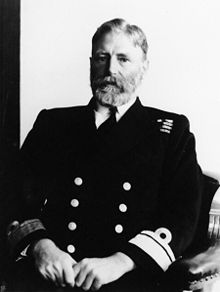Victor Alexander Charles Crutchley
| Sir Victor Crutchley | |
|---|---|

Victor Crutchley in 1942
|
|
| Born |
2 November 1893 Chelsea, London |
| Died | 24 January 1986 (aged 92) Nettlecombe, Dorset |
| Buried | St Mary's Churchyard, |
| Allegiance | United Kingdom |
| Service/branch | Royal Navy |
| Years of service | 1906–1947 |
| Rank | Admiral |
| Commands held |
Royal Navy Dockyard, Gibraltar (1945–47) HM Australian Squadron (1942–44) HMNB Devonport (1940–42) HMS Warspite (1937–40) Fishery Protection and Mine-Sweeping Flotilla (1936–37) HMS Diomede (1930–32) |
| Battles/wars |
First World War Second World War |
| Awards |
Victoria Cross Knight Commander of the Order of the Bath Distinguished Service Cross Mentioned in Despatches Croix de guerre (France) Chief Commander of the Legion of Merit (United States) Order of Polonia Restituta (Poland) |
Admiral Sir Victor Alexander Charles Crutchley VC, KCB, DSC, DL (2 November 1893 – 24 January 1986) was a senior Royal Navy officer during the Second World War and a First World War recipient of the Victoria Cross, the highest award for gallantry in the face of the enemy that can be awarded to British and Commonwealth forces.
Crutchley was born on 2 November 1893 at 28 Lennox Gardens, Chelsea, London, the only son of Percy Edward (1855–1940) and the Hon. Frederica Louisa (1864–1932), second daughter of Charles FitzRoy, 3rd Baron Southampton. His mother had been maid of honour to Queen Victoria. He was a godchild of Queen Victoria (from whom he derived his first two names). He joined the Navy in 1906 and was educated at the Royal Naval College, Osborne.
In September 1915 Crutchley was promoted to lieutenant and posted to a battleship of the Grand Fleet, HMS Centurion. Centurion participated in the Battle of Jutland. After the battle Roger Keyes assumed command of Centurion and acquired a highly favorable impression of Crutchley. Keyes selected Crutchley for the Zeebrugge Raid of 23 April 1918; he was assigned by Keyes as First Lieutenant to Commander Alfred E. Godsal, also of Centurion, on the obsolete cruiser Brilliant.
...
Wikipedia
